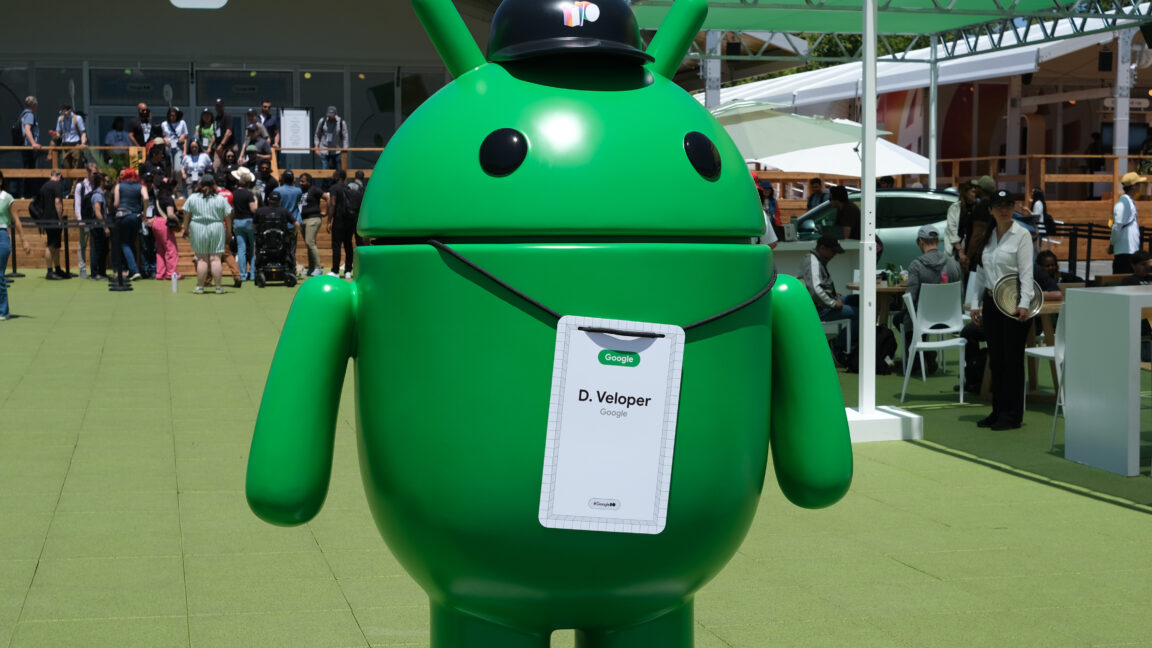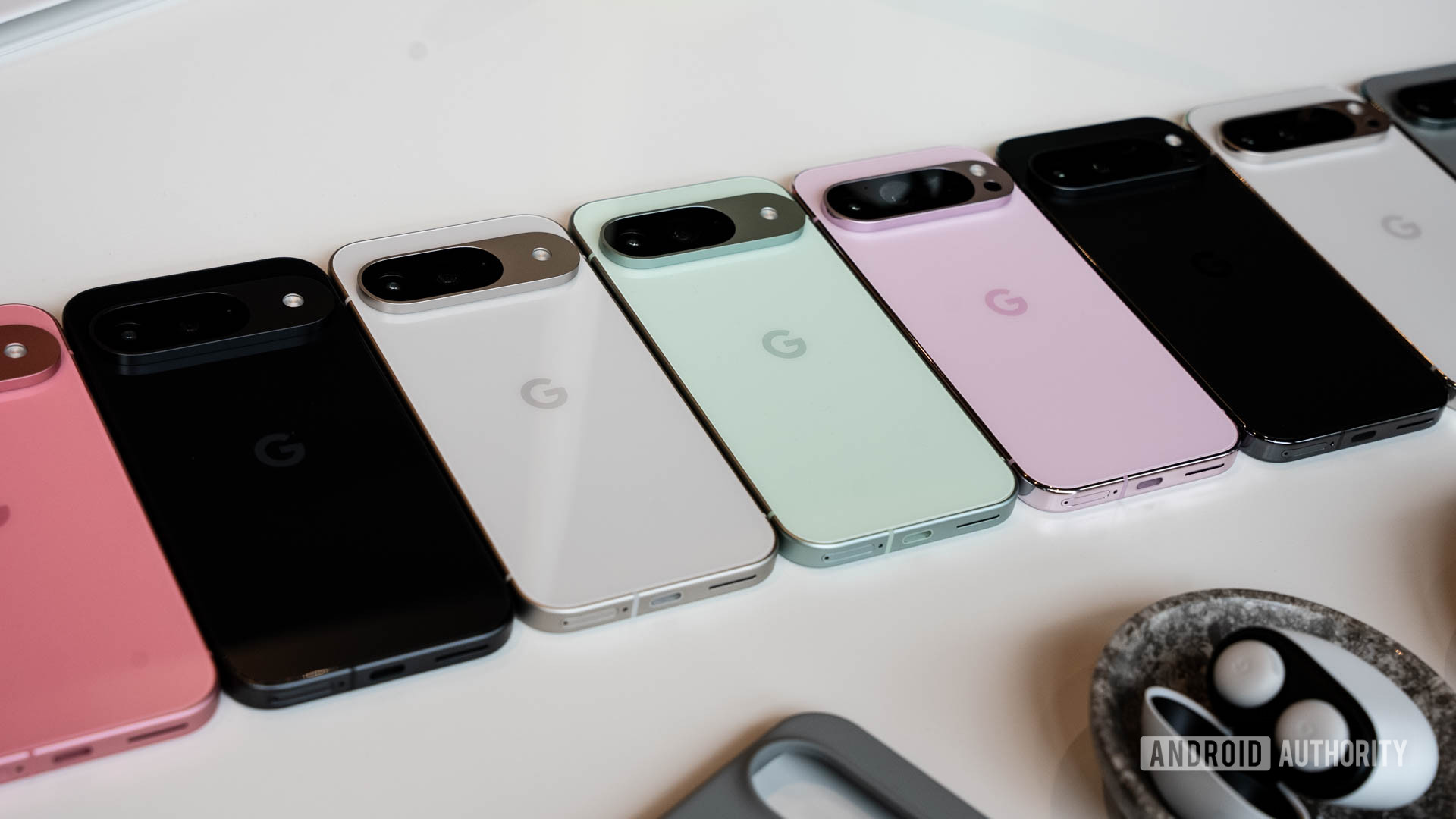
Google will block sideloading of unverified Android apps starting next year
Google says it’s no different than checking IDs at the airport.arstechnica.com
Android's open nature set it apart from the iPhone as the era of touchscreen smartphones began nearly two decades ago. Little by little, Google has traded some of that openness for security, and its next security initiative could make the biggest concessions yet in the name of blocking bad apps. Google has announced plans to begin verifying the identities of all Android app developers, and not just those publishing on the Play Store. Google intends to verify developer identities no matter where they offer their content, and apps without verification won't work on most Android devices in the coming years.
Google used to do very little curation of the Play Store (or Android Market, if you go back far enough), but it has long sought to improve the platform's reputation as being less secure than the Apple App Store. Years ago, you could publish actual exploits in the official store to gain root access on phones, but now there are multiple reviews and detection mechanisms to reduce the prevalence of malware and banned content. While the Play Store is still not perfect, Google claims apps sideloaded from outside its store are 50 times more likely to contain malware.
This, we are led to believe, is the impetus for Google's new developer verification system. The company describes it like an "ID check at the airport." Since requiring all Google Play app developers to verify their identities in 2023, it has seen a precipitous drop in malware and fraud. Bad actors in Google Play leveraged anonymity to distribute malicious apps, so it stands to reason that verifying app developers outside of Google Play could also enhance security.
However, making that happen outside of its app store will require Google to take a page from Apple's playbook and flex its muscle in a way many Android users and developers could find intrusive. Google plans to create a streamlined Android Developer Console, which devs will use if they plan to distribute apps outside of the Play Store. After verifying their identities, developers will have to register the package name and signing keys of their apps. Google won't check the content or functionality of the apps, though.
Google says that only apps with verified identities will be installable on certified Android devices, which is virtually every Android-based device—if it has Google services on it, it's a certified device. If you have a non-Google build of Android on your phone, none of this applies. However, that's a vanishingly small fraction of the Android ecosystem outside of China.
Google plans to begin testing this system with early access in October of this year. In March 2026, all developers will have access to the new console to get verified. In September 2026, Google plans to launch this feature in Brazil, Indonesia, Singapore, and Thailand. The next step is still hazy, but Google is targeting 2027 to expand the verification requirements globally.
A seismic shift
This plan comes at a major crossroads for Android. The ongoing Google Play antitrust case brought by Epic Games may finally force changes to Google Play in the coming months. Google lost its appeal of the verdict several weeks ago, and while it plans to appeal the case to the US Supreme Court, the company will have to begin altering its app distribution scheme, barring further legal maneuvering.
Among other things, the court has ordered that Google must distribute third-party app stores and allow Play Store content to be rehosted in other storefronts. Giving people more ways to get apps could increase choice, which is what Epic and other developers wanted. However, third-party sources won't have the deep system integration of the Play Store, which means users will be sideloading these apps without Google's layers of security.
It's hard to say how much of a genuine security problem this is. On one hand, it makes sense Google would be concerned—most of the major malware threats to Android devices spread via third-party app repositories. However, enforcing an installation whitelist across almost all Android devices is heavy handed. This requires everyone making Android apps to satisfy Google's requirements before virtually anyone will be able to install their apps, which could help Google retain control as the app market opens up. While the requirements may be minimal right now, there's no guarantee they will stay that way.
The documentation currently available doesn't explain what will happen if you try to install a non-verified app, nor how phones will check for verification status. Presumably, Google will distribute this whitelist in Play Services as the implementation date approaches. We've reached out for details on that front and will report if we hear anything.
You are using an out of date browser. It may not display this or other websites correctly.
You should upgrade or use an alternative browser.
You should upgrade or use an alternative browser.
Sideloading in Android could be going away by 2027
- Thread starter Deltron
- Start date
More options
Who Replied?Google making everything shytty to benefit shareholders and their ad revenue, as if they need any more.
Artificial Intelligence
Not Allen Iverson
I just got the fold 7 

Mike Nasty
Veteran
as long as Kodi is verified.
of course
So much for that
Gizmo_Duck
blathering blatherskite!
That's fine, for new shyt.
The good shyt that you can sideload is either dead or some new subscription based shyt. So you just keep a sideloaded copy of the version you like that works with no ads or subscription requests.
Keep an old android phone or tablet and run the boots.
The good shyt that you can sideload is either dead or some new subscription based shyt. So you just keep a sideloaded copy of the version you like that works with no ads or subscription requests.
Keep an old android phone or tablet and run the boots.
I made the jump to GrapeheneOS about 10 months ago and I'm good on this side. Decided to get of off most Google-related apps in the process and feel much saner. I use F-Droid or Aurora Store for most stuff nowadays
Last edited:
NotAnFBIagent
[redacted]
Tf is thatI made the jump to GrapeheneOS about 10 months ago and I'm good on this side. Decided to get of most Google-related apps in the process and feel much saner. I use F-Droid or Aurora Store for most stuff nowadays
GrapheneOS is basically stock Android, but with an emphasis on privacy and security. They strip out Google's ability to track everything you do for the most part altho you can reinstall Google Apps if you want.Tf is that
It's very popular in the privacy community, and also apparently drug dealers in Europe since it's so secure:
Cops in this country think everyone using a Google Pixel must be a drug dealer (Updated)
Pixel phones are criminals' top pick in Spain's Catalonia for their strong security and mod-friendly design.
www.androidauthority.com
One of the main benefits is that I still get all of the Google Pixel updates within a week or two after Google releases them, yet when Google does some fukk shyt like fukking with sideloading, it typically doesn't hit me as a GrapheneOS user
Last edited:
Artificial Intelligence
Not Allen Iverson
Work on fold 7?GrapheneOS is basically stock Android, but with an emphasis on privacy and security. They strip out Google's ability to track everything you do for the most part altho you can reinstall Google Apps if you want.
It's very popular in the privacy community, and also apparently drug dealers in Europe since it's so secure:

Cops in this country think everyone using a Google Pixel must be a drug dealer (Updated)
Pixel phones are criminals' top pick in Spain's Catalonia for their strong security and mod-friendly design.www.androidauthority.com
One of the main benefits is that I still get all of the Google Pixel updates within a week or two after Google releases them, yet when Google does some fukk shyt like fukking with sideloading, it typically doesn't hit me as a GrapheneOS user
Nope. Samsung locks the bootloader so you can't install ROMs. If this is true and I can't get around it, I may finally get a Pixel or some Chinese phone.Work on fold 7?
